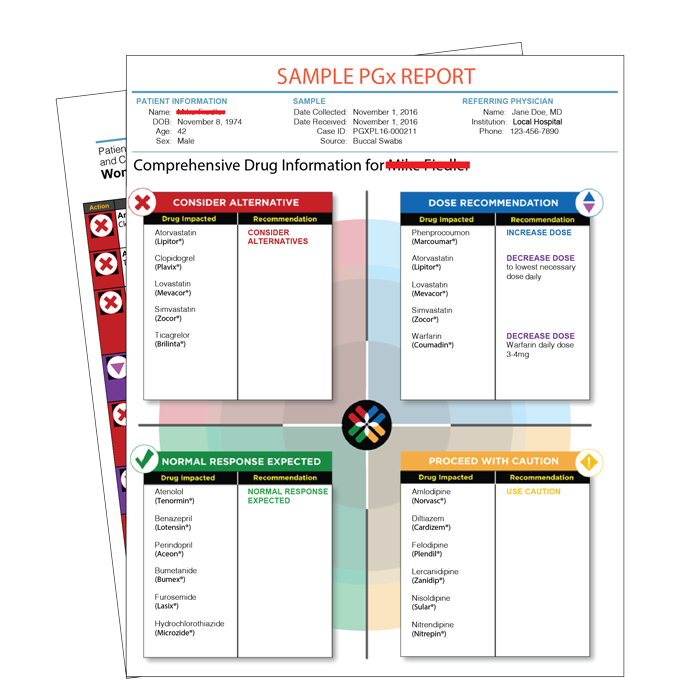
Is Your Medicine Right For
Your Metabolism?
The Right Drug
The Right Dose
Right From The Start

727-322-3870


According to the FDA, more than 75% of people have genetic variations that affects how they respond to the most commonly prescribed medications.1 As a result, as much as 50% of prescribed drugs can be ineffective.2
Without PGx testing, doctors must put their patients through risky drug trials, subjecting them to ineffective medications and insidious side effects before finally finding a drug that works best.3
This can be time consuming, frustrating, dangerous, agonizing, expensive and may delay receiving much needed relief.
1FDA.gov-table of Pharmacogenetic Associations. 2Slone Epidemiology Center. 3Mayo Clinic. 4U.S. News and World Report – Sept 27th, 2016.
5NIH- National Institutes of Health & AMA. 6Center for Education Research. 7John Nelson, MD., former president of AMA.
Medicare and Medicaid* will now cover a PGx genetic test that reduces the need for “trial-and-error” prescribing.
With Pharmacogenetic (PGx) testing, it has never been easier to navigate the unique connections between DNA and medication treatment options.
With a simple cheek swab, doctors can now determine if a drug is more likely to help or harm a patient- before he/she even consumes a drug.
*Medicaid in approved states

It is essential to mention that most labs focus on only a limited number of drugs, genes, and variants, so many physicians have never been exposed to
an efficacious test. This has led to some hesitation among doctors in implementing PGx tests.
An efficacious PGx tests utilizes Next Generation Sequencing (NGS) assay to provide clinically actionable information for medications across a broad
range of medical fields, including anesthesiology, cardiology, endocrinology, gastroenterology, gynecology, immunology, infectious diseases,
neurology, oncology, pain management, psychiatry, respiratory, rheumatology, toxicology, urology, and more.
The test also yields results for drug-drug, drug-food, drug-alcohol, and drug-lab interactions.
*Typically, test results take about ten days, so preemptive testing is highly recommended so the results
are readily available in a medical emergency or before trying a new drug.


*Medicaid in approved States

Marion was PGx tested in April 2019. Based on the results, her doctor advised her to stop taking the Metoprolol, which she had been taking for years, and decreased the dosage of her HBP medications. Two years later, her pain management doctor ignored her PGx report and prescribed 300 mg of Tramadol, which caused a life-threatening ADR, and she was hospitalized for three days. If her doctor had adhered to the PGx report guidelines, all the expense and suffering could have been avoided.

Mike was having difficulty sleeping, so his doctor prescribed Escitalopram. After five weeks of undesirable side effects and no relief, he had a PGx test and learned he was a rapid metabolizer of Escitalopram. If he had been preemptively PGx tested, it would have saved him and his insurance company money and Mike time by avoiding a useless trip to the pharmacy to purchase an ineffective drug. More importantly, he would have received relief weeks sooner.

Dorothy was experiencing a piercing headache, so she went to the ER. They gave her Reglan 5mg, IV push once, and Toradol 15 mg. A few days later, she had stroke-like symptoms, so her doctor ordered an MRI. Several months later, she had a PGx test and discovered that she was a slow metabolizer of Toradol. If she had a preemptive PGx test, it could have saved her insurance carrier thousands of dollars and spared her the distress and anguish caused by a preventable ADR.
pgxmike@saferrx.net
www.calendly.com/mfiedler3
727-322-3870

360 Central Ave, Suite 800
St. Petersburg, FL 33701
Copyright© 2025 saferrx.net®, All Right Reserved

Copyright© 2025 saferrx.net®, All Right Reserved
727-322-3870